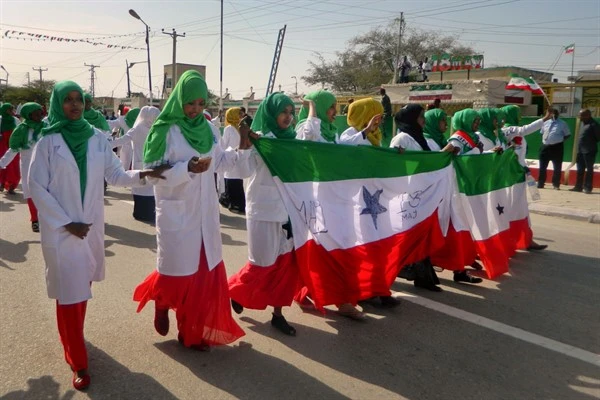In the complex landscape of Horn of Africa geopolitics, the recent sea access deal between Ethiopia and Somaliland has set off a diplomatic storm with far-reaching implications. The accusations and counter-accusations underscore the fragility of regional relations, and the potential consequences of such events are not confined to the immediate stakeholders.
The Geopolitical Chessboard:
Ethiopia, a nation of more than 120 million people, has been grappling with its landlocked status since Eritrea’s secession in 1993. Prime Minister Abiy Ahmed’s characterization of Ethiopia as a “geographical prison” highlights the strategic significance of the deal with Somaliland. If successful, this agreement could grant Ethiopia access to the Gulf of Aden and the Red Sea, opening up vital trade routes and challenging the status quo in a region historically marked by maritime disputes.
The accusations of annexation by Somali President Hassan Sheikh Mohamud add a layer of complexity to the geopolitical chessboard. Somalia’s claim over Somaliland’s sovereignty clashes with the de facto independence enjoyed by the breakaway region for the past three decades. The deal not only challenges Somalia’s territorial integrity but also deepens the longstanding tensions between the two nations.
The Houthi Blockade’s Ripple Effect:
Simultaneously, the broader geopolitical context includes the Houthi blockade in the Red Sea, further complicating matters. The Houthi rebels in Yemen have repeatedly targeted international shipping lanes, posing a significant threat to maritime security. As Ethiopia seeks an alternative to its dependency on Djibouti for trade, the Houthi blockade amplifies the urgency and importance of securing alternate access routes.
The maritime chokepoint created by the Houthi blockade has economic implications not just for Ethiopia but for the entire region. The Red Sea is a vital corridor for global trade, and any disruptions could have a cascading effect on international commerce. The interconnectedness of global markets means that instability in one region can reverberate globally, affecting economies, energy supplies, and diplomatic relations.
Navigating the Storm:
In navigating these turbulent waters, diplomatic finesse is crucial. The accusations against Ethiopian military involvement in Somaliland and the alleged actions against President Mohamud during the African Union summit showcase the fragile state of regional relations. Diplomats must tread carefully to prevent a potential escalation into armed conflict, recognizing that stability in the Horn of Africa is not only in the interest of the nations directly involved but also the broader international community.
The events unfolding in the Horn of Africa underscore the delicate balance required to address regional geopolitical complexities. As Ethiopia seeks an outlet to the sea and Somaliland grapples with internal divisions over the deal, the international community must monitor developments closely and actively engage in diplomatic efforts to de-escalate tensions. Simultaneously, addressing the Houthi blockade remains a critical component in ensuring the stability of maritime trade routes and the economic well-being of nations in the region and beyond.
In the wake of the Ethiopia-Somaliland sea access deal, the geopolitical chessboard in the Horn of Africa continues to evolve, unveiling a complex web of regional dynamics. As accusations of annexation fly and tensions rise, the strategic significance of the agreement becomes increasingly apparent. Ethiopia, Africa’s most populous landlocked nation, seeks to break free from its “geographical prison,” aiming to establish a port in Somaliland and gain access to the Gulf of Aden and the Red Sea.
The geopolitical implications extend beyond the immediate players. The delicate dance between Ethiopia, Somaliland, and Somalia underscores the fragility of regional relations. Somalia’s vehement objection, including hints at the possibility of war, adds a layer of uncertainty to an already volatile situation. The accusations of Ethiopian military involvement in Somaliland further complicate matters, requiring diplomatic finesse to prevent a potential escalation into armed conflict.
Simultaneously, the Houthi blockade in the Red Sea amplifies the urgency of Ethiopia’s quest for alternative trade routes. The maritime chokepoint created by the Houthi rebels poses not only an economic threat to Ethiopia but also a global concern, as disruptions in the Red Sea can reverberate throughout international trade networks. Navigating this geopolitical abyss requires a delicate balance between national interests, regional stability, and international cooperation.
As the international community watches closely, diplomats must engage actively in de-escalation efforts, recognizing that the stability of the Horn of Africa is not only vital for the nations directly involved but also for the broader global community. The unfolding events serve as a stark reminder of the interconnectedness of geopolitics and the imperative of diplomatic agility in the face of evolving regional challenges.
Image credit: AP photo by Barkhad Dahir





